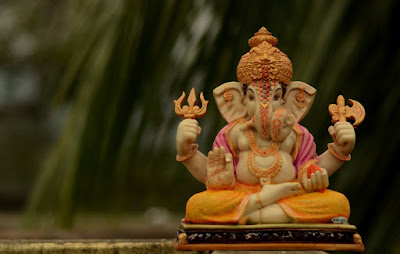Topic Brainstorm
Possible Topics for Project
Rama - Topic 1
From Wikipedia
Rama is a major deity of Hinduism. He is the seventh avatar of the god Vishnu, and is sometimes considered the Supreme Being. He married Sita. Despite being royalty he was faced with many challenges such as being exiled and the kidnapping of Sita by Ravana. Possible topics are duties, rights, and social responsibilities of an individual. 1From Projects
Tales of Rama 2 - "They all somehow have a connection to this Rama guy and each one of their stories is different. I think the stories are helping them get along here. In all the rough times these stories seem to bring some sense of unity to the group." This quote seems to embody the ideas that have been mentions about the Indian story-telling traditions. I found it neat that each story had a different theme and each were applicable to those stranded on the island.From Additional Reading
Rama's Bridge 3- A chain of limestone shoals between Pamban Island off the south-eastern coast of Tamil Nadu, India, and Mannar Island, off the north-western coast of Sri Lanka.
- The bridge is said to have been formed by Vanara (ape men) army of Rama.
Ganesha - Topic 2
From Wikipedia
Ganesha 4 - Ganesha is one of the best-known and most worshiped deities in the Hindu pantheon. His is popularly worshiped as a remover of obstacles, though traditionally he also places obstacles in the path of those who need to be checked, "his task in the divine scheme of thins, his dharma, is to place and remove obstacles. It is his particular territory, the reason for his creation." An annual festival honours Ganesha for ten days, starting on Ganesha Chaturthi, which typically falls in late August or early September.Parvati 5 - The Hindu goddess of fertility, love and devotion; as well as of divine strength and power. She is the mother goddess in Hinduism. Below is the story of Ganesha's birth. 6
Once, while Parvati wanted to take a bath, there were no attendants around to guard her and stop anyone from accidentally entering the house. Hence she created an image of a boy out of turmeric paste which she prepared to cleanse her body, and infused life into it, and thus Ganesha was born. Parvati ordered Ganesha not to allow anyone to enter the house, and Ganesha obediently followed his mother's orders. After a while Shiva returned and tried to enter the house, Ganesha stopped him. Shiva was infuriated, lost his temper and severed the boy's head with his trident. When Parvati came out and saw her son's lifeless body, she was very angry. She demanded that Shiva restore Ganesha's life at once. Shiva did so by attaching an elephant's head to Ganesha's body, thus giving rise to the elephant headed deity.
Shiva 7 - He is the Supreme Being within Shaivism, one of the major traditions within contemporary Hinduism. Shiva is the "destroyer of evil and the transformer" within the Trimurti, the Hindu trinity that includes Brahma and Vishnu. In Shaivism tradition, Shiva is the Supreme being who creates, protects and transforms the universe. Below is an oleograph by Raja Ravi Varma depicting a Shiva-centric Panchayatana. A bearded Shiva sits in the centre with his wife Parvati and their infant son Ganesha; surrounded by (clockwise from left upper corner) Ganesha, Devi, Vishnu and Surya. Shiva's mount is the bull Nandi below Shiva. 8
Additional Reading
There is a comic book available from the Bizzell Library. "Ganesha: The Remover of All Obstacles" 9 . I feel that this would be a good source to get additional information, and that is would be an interesting read.Karma - Topic 3
From Wikipedia
Karma means action, work or deed; it also refers to the spiritual principle of cause and effect where intent and actions of an individual (cause) influence the future of that individual (effect). Good intent and good deed contribute to good karma and future happiness, while bad intent and bad deed contribute to bad karma and future suffering. Karma is closely associated with the idea of rebirth in many schools of Indian religions. In these schools, karma in the present affects one's future in the current life, as well as the nature and quality of future lives. 10Personal Thoughts
For me Karma would be an interesting concept to right about. I have always been a big fan of the saying that "what goes around comes around". Examining the influence of karmic actions throughout these epics would be allow you to see how the past actions of the characters either negatively or positively affect the present. More a previous assignment I read this storybooks and it was very enjoyable. 11Reincarnation - Topic 4
From Wikipedia
The idea of reincarnation has early roots in the Vedic period (c. 1500 – c. 500 BCE), predating the Buddha and the Mahavira. The concepts of the cycle of birth and death, samsara, and liberation partly derive from ascetic traditions that arose in India around the middle of the first millennium BCE. Though no direct evidence of this has been found, the tribes of the Ganges valley or the Dravidian traditions of South India have been proposed as another early source of reincarnation beliefs. The early Buddhist texts discuss rebirth as part of the doctrine of Saṃsāra. 12Additional Reading
To get more content for this topic it would be necessary to examine well theorized examples of reincarnation. Such as how Sita was believed to be Vedavati. 13 It seems to me that this would be the most open ended topic to choose from, but that makes it slightly daunting to approach.Bibliography
[1]: https://en.wikipedia.org/wiki/Rama[2]: https://sites.google.com/site/talesoframa/home
[3]: https://en.wikipedia.org/wiki/Adam%27s_Bridge
[4]: https://en.wikipedia.org/wiki/Ganesha
[5]: https://en.wikipedia.org/wiki/Parvati
[6]: https://en.wikipedia.org/wiki/Parvati#cite_ref-68
[7]: https://en.wikipedia.org/wiki/Shiva
[8]: https://en.wikipedia.org/wiki/File:Traditional_Indian_Print_by_Artist_Raja_Ravi_Varma.jpg
[9]: http://ackguide.blogspot.com/2015/07/guide-ganesha.html
[10]: https://en.wikipedia.org/wiki/Karma
[11]: http://indianepicsfromkarma.tumblr.com/introduction
[12]: https://en.wikipedia.org/wiki/Reincarnation#Early_Jainism.2C_Hinduism_and_Buddhism
[13]: https://en.wikipedia.org/wiki/Vedavati



Comments
Post a Comment